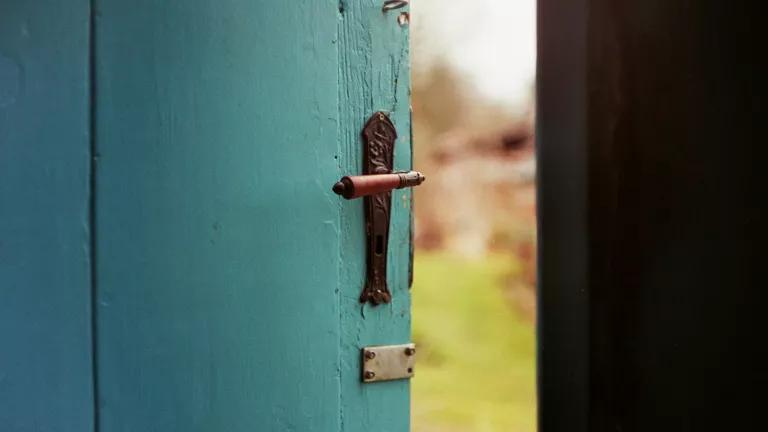Beat the Heat with Energy Efficiency
Summer drawing near means warmer temperatures are on the horizon. Whether you are still working from home, and want to keep cool in your home office, or you are just looking for ways to save money, energy efficiency can help.

Jill Wellington from Pexels
This blog was co-authored with my colleague Ashley Leung
Summer drawing near means warmer temperatures are on the horizon. Whether you are still working from home, and want to keep cool in your home office, or you are just looking for ways to save money, energy efficiency can help.
Embracing energy efficiency at home is not new. In fact, it has been saving consumers money on their energy bills for decades. Appliance efficiency standards alone save the average U.S. household almost $500 a year on energy bills and a 2020 poll found that 2 in 3 U.S. adults favor stricter efficiency standards for appliances and buildings.
Here are some tips:
Get Grilling
During the recent months stuck at home, many people picked up the habit of baking bread to pass the time. This summer, consider cooking outside on the grill (or even over a campfire or fire pit!)—instead of using your oven. Cooking in an oven can raise the indoor temperature, which means you end up using more energy to bring the temperature back down.

Daniel Hooper from Unsplash
Gas cooktops and ovens also affect indoor air quality by raising concentrations of nitrogen oxides and carbon monoxide. Trading the sourdough for some grilled goodies is not only great summer fun, but it could make your home healthier and cut down on your energy use.
Enjoy Efficient Entertainment
If you’re staying inside on a hot day to play video games, disable the instant-on feature on your gaming console. Consoles across the country all using this feature could result in the equivalent of one large (500 MW) coal-burning power plant’s worth of extra annual electricity generation, and cost U.S. gamers an extra $500 million in electricity bills through 2025.
Avoid using gaming consoles to stream movies and TV shows. Watching videos on these consoles can draw 10 to 25 times more electricity than using devices like the Apple TV, Roku box, or Amazon Fire Stick.

Be Serious about Sealing
Did you know that if you add up all the gaps around the windows and doors in an average American house, you have the equivalent of a 3-foot by 3-foot hole in the wall? The Department of Energy offers suggestions on sealing leaks in your home with methods like caulking and weatherstripping. Sealing gaps will make sure that no hot air is slipping in, and your air conditioned air is not slipping out—further reducing the amount of energy you need to cool your home.
Sealing leaks will save you money on your energy bills and keep you healthier and more comfortable at home. A case study found that residents of inefficient homes were approximately 50 percent more vulnerable to heat stress during a heat wave than were residents of efficient homes, but energy efficiency upgrades could reduce this risk to 4 percent.
Remember the HVAC
You may not think much about your HVAC (heating, ventilating, and air conditioning) system, but proper upkeep can keep the system running efficiently, lowering energy use and emissions, and saving on maintenance and replacement costs by extending the life of your equipment.

DOE
A dirty air filter slows airflow and makes your AC work harder, possibly even leading to early system failure. Set a calendar reminder to replace your filter at least every three months. Some filters can be cleaned rather than replaced, so be sure to check the instructions for your specific unit. Hire a contractor to annually check, maintain, and possibly upgrade your HVAC equipment to improve efficiency and comfort year-round.
As Easy as It Gets
There is a lot you can do to easily manage the temperature of your home without making any big or expensive changes:
- A ceiling fan can make a room feel ten degrees cooler and uses only ten percent of the energy as compared to a traditional air conditioner. Instead of cranking up the AC, switch on the fan and you’ll be just as comfortable. Set the fan to spin in a counterclockwise direction so it pulls up cooler air from the ground to blow it back down. Just remember to turn the fan off when you leave the room—they cool people, rather than the rooms themselves, by creating a wind chill effect.
- Raise the temperature on the thermostat before leaving home for long periods of time. Keep the thermostat at 72 degrees while you are home and 78 degrees when you are away. Adjusting your thermostat overnight or when you head out could help cut your heating and cooling bills by as much as 10 percent to 15 percent throughout the year.
- Close curtains or shades to keep the room cooler on hot days. That way, less sunlight can shine through and heat up your home (or apartment) in the first place.
Embracing efficiency will save money and also help to fight the climate crisis by reducing the amount of climate warming emissions from fossil fuel-burning power plants. Energy efficiency, alone, could provide 40 percent of the emissions reductions needed to meet the targets of the Paris Agreement, which the U.S. has now rejoined. Efficiency also reduces illnesses and saves lives. Lowering summertime energy use by just 12 percent through efficiency measures would save about 175 lives each year by reducing various air pollutants that are emitted from electricity generation. So, this summer, choose to use the tool of energy efficiency to keep your cool, boost your savings, and help the climate.
For even more summer tips, check out this post from the Energy Efficiency Day website.



